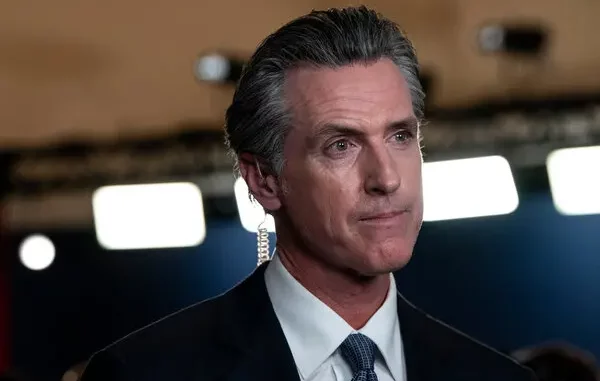
Sooner or later, some California governors wear out their welcome and leave office in clouds of popular disdain.
It’s not a universal syndrome. Republican Ronald Reagan maintained his popularity, so much so that five years after departing in 1975, California voters strongly endorsed his challenge to Democratic President Jimmy Carter.
The arc of Reagan’s successor, Democrat Jerry Brown, was very different. He enjoyed strong support in the early stages, but two failed efforts to become president and other miscues dragged down his popularity and voters rejected his bid for the U.S. Senate in 1982.
It mirrored the experience of Brown’s father, Pat Brown, who had overstayed his welcome, tried to win a third term in 1966 and lost to Reagan.
‘I believe the people of California would like a respite from me and in some ways I would like a respite from them,’ Jerry Brown said after his Senate defeat. Decades later, he won two more terms as governor and retired in 2019 with his legacy and popularity intact.
The difference between Brown’s two stints as governor illustrates why some holders of the office leave on high notes and some do not.
Brown 1.0’s constant yearning to abandon the governorship for higher office, when coupled with a lackluster record, simply turned people off. Brown 2.0 made few promises, kept those he made and demonstrated engagement in the job to which he was elected.
The flip side of the popularity coin is a governor who doesn’t over-promise and under-deliver, but shies away from doing the job.
Democrat Gray Davis won the office in 1998 on his credentials, which included a term as lieutenant governor. But once he was inaugurated, he indicated by word and deed that he was risk-averse and didn’t intend to do very much.
Davis let two crises fester — one in state finances and the other in electrical energy — and barely won re-election in 2002 against a very weak Republican challenger. A year later voters recalled him and replaced him with action movie star Arnold Schwarzenegger.
Schwarzenegger initially enjoyed strong public support with his promises to overhaul a bloated state government and won a full term in 2006, but left behind a string of failed efforts to win voter support for reform measures and was very unpopular, having naively made promises he was incapable of keeping.
That brings us to Gavin Newsom, who has three years remaining in his governorship but is beginning to resemble Jerry Brown 1.0, implying to voters that his real interest lies in building national political standing rather than governing California.
A new poll by UC Berkeley’s Institute of Governmental Studies and co-sponsored by the Los Angeles Times found a sharp dip in Newsom’s approval this year among registered voters to 44%, down 11 percentage points from a February poll and 20 points from his high point of 64% three years ago.
‘He’s kind of taking on a new persona,’ Mark DiCamillo, director of the Berkeley-IGS poll, told the Times. ‘He’s no longer just the governor of California. He’s a spokesperson for the national party and basically voters are being asked to react to that.’
Newsom’s dip is exacerbated by two other factors: a growing malaise among Californians about rising crime rates, homelessness and economic disparity, and Newsom’s failure to deliver on the big promises he made to win election in 2018, such as single-payer health care and 3.5 million new housing units.
While Newsom has launched some potentially transformative changes in medical care for the poor and mental health, neither has borne fruit yet. It’s not surprising that a governor with a thin record of achievement and a wandering attention span is losing support.
CalMattars is a public interest journalism venture committed to explaining how California’s state Capitol works and why it matters.



Be the first to comment